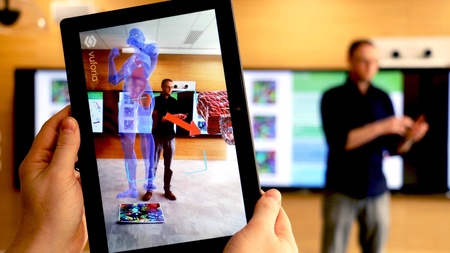The same technology used in Pokémon Go and Snapchat filters is now being used by a University of Aberdeen lecturer to explain fundamental biological processes.
Dr John Barrow, a Senior Lecturer in Molecular Biology has been awarded a prestigious £10,000 grant to develop an augmented and virtual reality app to help students understand how the body works on a microscopic level.
The app will allow students to use their phones and tablets to interact with 3D visualisations that explain complex biological functions.
“This is a different way of teaching,” explains Dr Barrow. “The current teaching methods that the vast majority of students are used to will involve lectures and textbooks.”
“I’m trying to create a far more interactive and immersive experience. A lot of the things I teach are at an extremely small scale in our bodies and therefore it is very hard for students to visualise and understand because they are abstract concepts.
“The idea behind the project is to take some of these fundamental biological processes and bring them to life using this augmented reality method, allowing students to see some of these functioning.
“Normally these processes would be explained through still images or with videos projected on the wall but we’re trying to bring these to life so you can really see the process in action.”
The money was awarded to Dr Barrow from the Physiological Society David Jordan Teaching Award.


